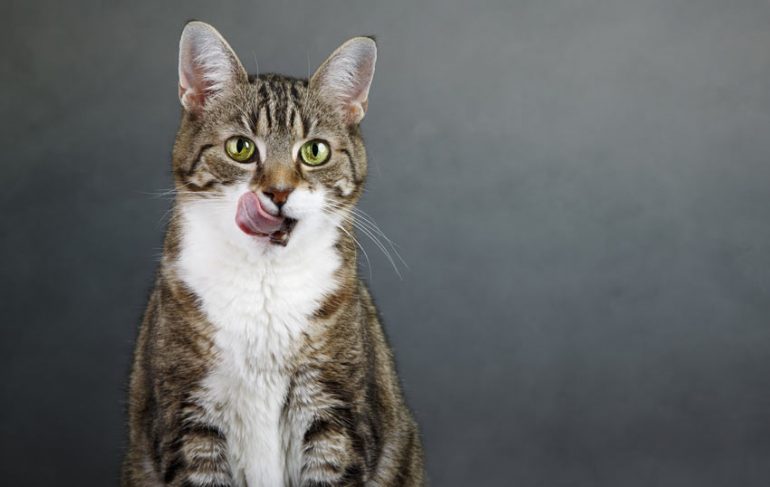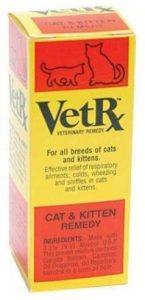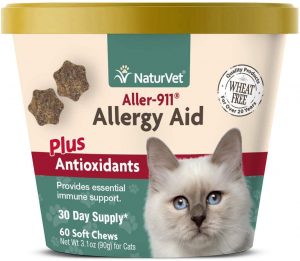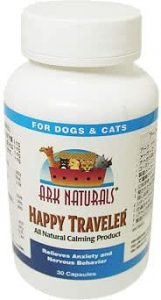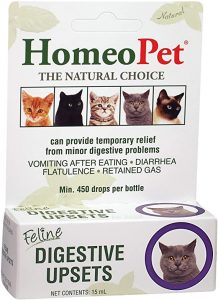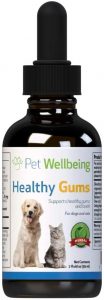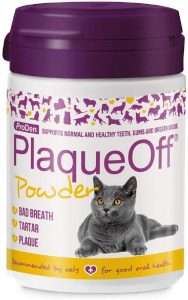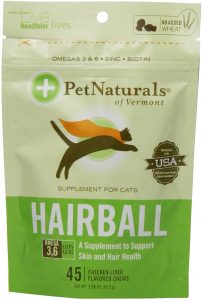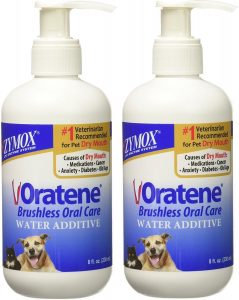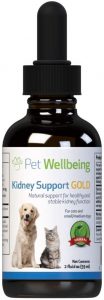Cats might be one of the most adorable animals one can own. Everything they do from eating to cuddling is just perfect and the way they act cool all the time is the most charming thing one can ever witness. But everything they do can’t be considered as one of their adorable acts. But when cat licking lips, a cat owner should be aware of it.
There are many cat owners whose cats lick their lips a lot. This might be a sign of danger. Occasional lip licking can be the result of dry mouth. But if this lip-smacking becomes too frequent and the cat does this all the time, then this can be considered as a problem. And you should take your cat to a veterinarian.
One of the biggest reasons behind this frequent lip licking can be ptyalism. Ptyalism is one of the main causes behind your cat smacking and licking its lips all the time. This is a condition when the mouth generates way too much saliva. This condition can also take place in human beings. If there is too much saliva in the mouth than manageable then it can cause trouble inside the mouth.
Read about Apoquel Alternatives to keep your pet safe from allergy problem.
There are some symptoms of ptyalism.
> If the cat is smacking its lips too much then it can be because of ptyalism. This is a kind of saliva disorder which can be commonly seen in cats.
> Ptyalism can also cause nausea in cats. So if you think that your cat is feeling nauseous, then this can be the case. Lip smacking can become severe when the cat is nauseous all the time and throws up way too much. Also, if the cat rejects the food or can’t control the saliva in its mouth, then these can be considered as one of the symptoms of ptyalism. Kidney related issues can also cause ptyalism in cats where the body produces way too much saliva than the mouth can handle.
These signs are enough to take your cat to a veterinarian. Ptyalism is something that increases with time and also can be triggered by other health issues so keep an eye out for your cat and also make sure you provide the proper aid that is needed.
Another reason behind cats licking their lips is vomiting. If your cat throws up, then it is very likely that your cat will lick its lips. If the licking of the lips becomes frequent then it can also mean that your cat throws way too much. This might be because of an upset stomach, which generally happens when the cat eats something it should not like a hairball or stale food that can result in vomiting.
Apart from that, vomiting can result in a lot of salivation and swallow which can really make your cat sick. So in such case, take your cat to a vet.
Where too much saliva can cause lip-smacking, lack of saliva can also cause the same. The condition is called xerostomia. In this condition, cats usually end up with a dry mouth, meaning their mouth does not produce enough saliva, which can make them lick their lips to deal with the dryness. If the cat is licking its lips way too much then xerostomia can be a reason.
Dealing with this one is not very hard. You can make sure that your cat drinks enough water every day. And if this continues even after giving them plenty of water, then you know what to do. Take them to the vet who can treat your kitty and make it healthy and happy and there will be no more lip-smacking.
You may notice that your cat has started licking her/his lips excessively and continuously. Though they spend a lot of time grooming themselves and licking their lips, especially after a meal, if you observe that this behavior appears constantly and it seems to have increased over time, that certainly warrants a trip for kitty to the vet.
Reason 1
Upper respiratory infection, or a cold
Excessive licking of the lips may be due to an upper respiratory infection, or a “cold,” caused by either viruses or bacteria, and in some cases, by both.
There are at least five different types of these micro-organisms that cause upper respiratory infection. If the lip-licking is accompanied by sniffling, sneezing and discharge from the eyes/nose, fatigue and poor appetite, an upper respiratory infection may be indicated.
Your vet can confirm this with blood and urine tests and an electrolyte balance test to rule out dehydration. The infection may last for up to 21 days and medications may be recommended.
Natural Solution
Goodwinol Vet Rx Cat – 2oz. This 100% natural product has been tried and tested for more than a century.
It is a useful medication that provides temporary but effective treatment for upper respiratory infection in cats and also combats allergies. It improves respiratory function and stimulates ventilation.
The active ingredients include 3.3% alcohol USP, Canada Balsam, Camphor, Oil Organum and Rosemary Oil in a corn oil base.
Tiny quantities of the product must be rubbed on the cat’s nose for relief, but not to be taken internally, as camphor may be harmful to animals.
Reason 2
Allergy
If kitty’s licking his/her lips excessively, it could be because of an allergy.
Something indoors or outside could be causing the allergy. Just like humans, cats are susceptible to certain micro-organisms and plant products that enter the respiratory system, or irritate the skin and cause distress.
These include mold spores, pollen (it can travel far and wide), grass (hay-fever reactions), dust-mites in the house/furniture/carpets, or animal dander. All these can cause a variety of problems, ranging from skin irritation, inflammation, dermatitis, breathing difficulties, etc.
If you notice a pattern in occurrence, you may be able to identify the cause and take preventive measures. The vet can prescribe medication to make him/her comfortable and boost immunity.
Natural Solution
NaturVet Aller-911 Allergy Aid Plus for Cats – 60 Soft Chews.
This product offers comprehensive immunity support, battles allergies and contains antioxidants that promote general health. It’s available in the form of soft chews that crumble quite easily and can be mixed into wet food.
They smell quite strong and kitty may refuse to eat them otherwise. It’s meant for the use of cats above the age of 12 weeks only and contains Omega-3 fatty acids, turmeric root, grape seed extract, quercetin, bromelain, EPA and DHA acids.
Other ingredients include brewer’s yeast, canola oil, citric acid, flaxseed, rosemary extract etc. and is wheat-free.
Reason 3
Motion Sickness
If you find kitty licking his or her lips a lot while traveling, it could be due to motion sickness.
Cats have a highly sensitive system of balance that’s located in the inner ear. When they’re in a moving vehicle, the sensation of movement causes disruption and dizziness.
They may also associate car travel with going to an unfamiliar place or the vet and that’s not necessarily a pleasant experience for most cats.
Licking the lips in such cases is an anxiety reaction, sometimes accompanied by drooling, vomiting, unusual loss of bowel/bladder control, trembling, etc. Get kitty used to traveling for pleasure and take him/her out for rides in the carrier placed securely in your car.
Natural Solution
Ark Naturals Happy Traveler All Natural Calming Formula, Capsules – 30 ea
This is an effective calming formula for cats to ease tension and anxiety. The all-natural ingredients include valerian, German chamomile, kava kava, St John’s wort and melatonin.
You may have to crumble the capsules and mix it with kitty’s wet food because cats are notoriously difficult patients. The formula works quite quickly and you can give it about 20 minutes before the journey to ensure enough time for the medication to start working.
Apart from motion sickness, this is a great solution for other types of anxiety reactions – during storms, fireworks, relocating to a new home, etc.
Reason 4
Digestive Problem
Nausea and digestive problems can cause the licking reaction in some cats.
Nausea may or may not be followed by vomiting. It may be caused by over-eating, eating too fast, hair-balls, eating something bitter, stomach infections, gas, etc.
It may or may not develop into diarrhea, but gastro-intestinal problems are quite common in cats. This can lead to dehydration, electrolyte imbalances, malnutrition, etc if not attended to promptly.
Age, food intolerance, sensitivity to certain foods, deficiency of digestive enzymes, colitis in cats below age 5, constipation due to lack of exercise, irritable bowel syndrome are some of the other reasons for digestive problems and nausea that show up in lip-licking behaviors.
Solution
HomeoPet Feline Digestive Upsets is effective if the problem is not caused by a toxin or micro-organism.
Available in liquid form, this is a fast acting medication that is safe for kittens, pregnant/nursing females, as well as all full grown cats.
It provides immediate (but temporary) relief from minor digestive problems such as diarrhea, vomiting, flatulence, gas, etc.
If your cat is throwing up within 20 minutes of eating, has bad or smelly breath, seems to be experiencing gas pains, bloating and colic, this medication provides relief.
The medicine has to be induced directly into the mouth, or mixed with water or food. More doses can be given if symptoms are acute. Active ingredients include Aconitum, aloe, arsenicum, nux vomicum, phosphoricum, etc. and water.
Reason 5
Dental or Oral Disease
Dental or Oral Disease can be one of the reasons why your cat constantly licks the lips.
Gum and tooth diseases are common in cats, especially in those over age 4. They may suffer from gingivitis, periodontitis or tooth resorption, all of which cause considerable discomfort and pain.
If left untreated, cats may stop eating, become dull and inactive and the disease may reduce their immunity to other infections. Gingivitis is a disease of the gums that can progress into a more serious form called periodontitis, an irreversible condition.
Tooth resorption is caused by the breakdown of the inner parts of the tooth and is a common reason for tooth loss in older cats.
Natural Solution
Pet Wellbeing – Healthy Gums for Cats – Natural Support for Periodontal Health in Felines – 2oz (59ml) boosts oral and dental health in cats.
Regular application of the product helps to fight gingivitis and tooth decay.
You can use a Q-tip to apply the medication directly on the infected teeth or gums or you can also use your fingers if you’re confident that you won’t be nipped.
However, it’s important to be consistent with the application of the medicine. Active ingredients include calendula, marshmallow and goldenseal roots, bayberry bark, myrrh gum, zinc oxide etc.
Talk to your vet before you start the medication
Reason 6
Oral ulcers or canker sores
Oral ulcers or canker sores may cause pain, dryness and discomfort in the mouth, causing your cat to lick his/her lips constantly.
Mouth-ulcers are not easy to identify but they may cause loss of appetite, depression and anxiety in cats. Canker-sores may also get inflamed and infected, leading to more serious issues.
The reasons could range from malnutrition, deficiency of certain minerals/vitamins or lowered immunity to acidic foods and infections.
They prevent kitty from eating well and digesting food, exercising and grooming. It’s important to notice behavior changes such as lip-licking, reluctance to be petted, frequent meowing etc. and visit your vet ASAP.
Natural Solution
ZYMOX Oratene Oral Gel, 1 oz is an effective antiseptic, pain-reducing gel that can be applied on the site of the sore/ulcer. It has broad-spectrum antibacterial and anti-fungal properties that help fight a range of infections.
You can continue with other medications recommended by the vet, along with this product since it doesn’t interfere with other medicines.
The ingredients include polyglycitol, glyceryl polymethacrylate, sorbitrol, potassium iodate, aloe vera and several natural enzymes.
The product is soothing and promotes quick healing of ulcers.
The enzymes in this medication help to also fight oral diseases such as gingivitis that are caused by bacteria.
Reason 7
Plaque and Tartar
Plaque and Tartar build-up may cause discomfort and irritation that result in lip licking behavior.
Most cats develop dental problems in their lifetime and this could range from foul breath to serious, irreversible periodontal disease and tooth loss.
Plaque appears as a thin film on the teeth after a meal and sleep. It is an amalgam of bacteria, food particles and saliva that gets attached to the smooth surface of the tooth and turns into hard tartar if not removed regularly. It’s important to get kitty’s teeth professionally cleaned and follow up with a dental hygiene routine at home.
Natural Solution
Plaque Off for Cats 40g – Special Feline Formulation supports dental and gum health while preventing plaque build-up and bad breath.
The product is a natural feed supplement that contains natural plaque or tartar-fighting ingredients such as seaweed. Daily use has shown to reduce bad-breath, plaque/tartar.
Other ingredients include crude ash and brewer’s yeast (which cats love).
It can be added to the cat’s normal wet food. A small scoop is provided with the container, so you don’t need guesswork to estimate how much to take.
Results may not be swift but consistent use does benefit your cat in the long run.
Reason 8
Dry Throat
If kitty seems withdrawn, licking her lips often and constantly swallows as if the throat is dry, the culprit could be Hairballs.
Cats are super-clean animals and constantly groom themselves. They have seasonal shedding of fur in the wild, and then it would simply fall off or get entangled in shrubs/grass.
However, domestic cats being indoors shed lightly all year round and because of their grooming habits, tend to swallow a lot of loose hair.
This may not pass comfortably through the intestines, causing discomfort and behaviors like grass-eating, loss of appetite, etc, unless they’re able to vomit the ball themselves.
Natural Solution
Pet Naturals Hairball helps to push hair through the digestive system and also supports skin and hair health to prevent excessive shedding. These are chicken-liver flavored chewy treats to kitty or added to wet food.
They are non-laxative, so don’t worry about upset tums. Active ingredients include psyllium that provides fiber and volume to intestinal waste and undigested materials, promoting easier elimination.
Other ingredients include cranberry, lecithin, biotin, zinc to promote GI and urinary tract health, Omega 3 and Omega 6 fatty acids to improve skin and hair health.
Two chews can be given regularly twice a day for general health and, in the case of a hairball, increased to four.
Reason 9
Dry Mouth
Dry mouth or xerostomia is found in senior kitties and is connected with renal disease. It can also be caused by dehydration and fever in younger cats.
If your cat is undergoing treatment for cancer or has been diagnosed with nerve degeneration or damage, immunity disorders, or severe tartar build-up, lip-licking is a common symptom.
Once the underlying cause has been diagnosed, your vet will recommend the right treatment. You can also supplement with home-based remedies, management and therapy.
Lip smacking along with frequent pushing out of the tongue, it indicates xerostomia and you can talk to your vet about it.
Natural Solution
Pet King Brands Zymox Water Additive Oral Solution is a vet recommended product for dry mouth.
It can be added to the pet’s drinking water in the quantity of about ½ teaspoon per four cups of water. It dissolves easily and being a flavorless concentrate, your kitty may accept it without much fuss.
Apart from keeping the mouth fresh and hydrated, this product helps to boost oral health and immunity. It’s safe for daily consumption.
The ingredients include glycerin, sorbitol, salt, zinc chloride, glucose oxidase etc in a purified water solution. Regular use prevents tartar build-up and oral infections, both of which cause dry mouth symptoms.
Reason 10
Pytalism or Excessive Salivation
Pytalism or excessive salivation is a common reason for lip licking behavior in cats. This is because they are trying to deal with the increased secretion of saliva. You may also notice drooling and lip smacking.
Pytalism is not usually a stand-alone symptom and may be accompanied by other odd behaviors such as nausea, swallowing difficulties, loss of appetite, aggression or irritation, agitation and constant pawing of the face and mouth.
Such action is usually indicative of serious conditions such as kidney disease, or more minor issues like stomach upset or anxiety. However, it demands an immediate visit to your vet.
Natural Solution
Pet Wellbeing – Kidney Support Gold for Cats – Natural Support for Feline Kidney Health – 2oz (59ml) helps to address kidney health in cats.
Once the underlying problem has been identified, make sure that suitable dietary changes and support are provided. This product helps to provide supplemental aid to fight kidney infections and boost immunity.
It also increases the appetite and promotes more energy and well-being while moderating excess urination and thirst.
It keeps your cat well hydrated and at a healthy weight.
Ingredients include rehmania and astragalus root, dong quai root, etc in deionized water with a yummy bacon flavor.

